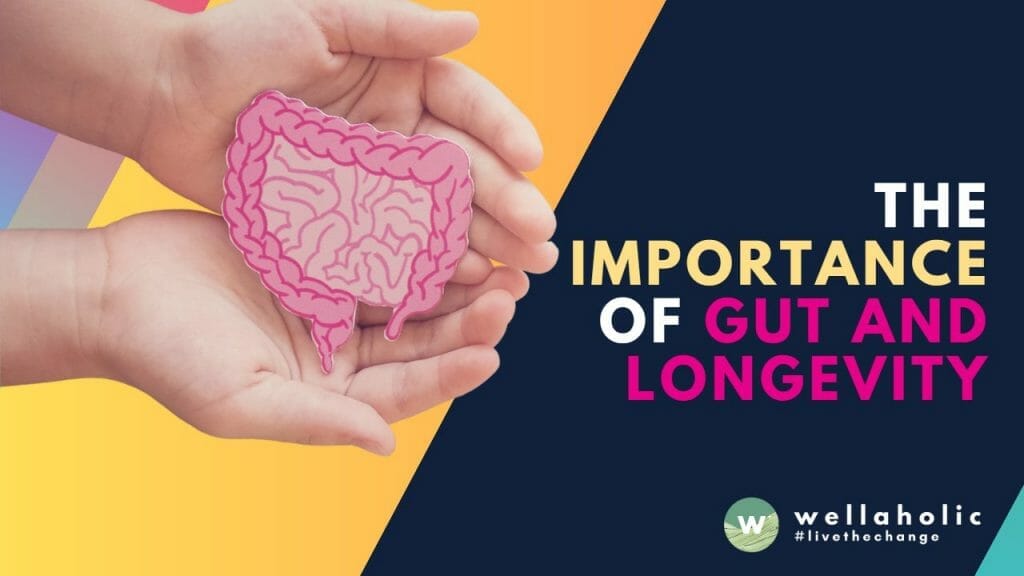
The Importance of Gut and Longevity
Table of Contents
- 0.1 TL:DR Summary
- 0.2 Introduction
- 0.3 The Gut Wall: A Protective Barrier
- 0.4 How to strengthen your gut
- 0.5 To live a long and healthy life, make your bacteria hungry
- 0.6 Conclusion
- 0.7 Wellaholic – Our Vision and Brand Promise
- 0.8 Wellaholic – Our Value Proposition
- 1 The Importance of Gut and Longevity
TL:DR Summary
- Gut Wall: A barrier preventing toxins from entering your bloodstream.
- Gut Bacteria: Microorganisms aiding digestion, immunity, metabolism, and mood.
- Mitochondria: Cellular powerhouses that can be damaged by stress and aging.
- Gut-Mitochondria Axis: Communication between gut bacteria and mitochondria affects health.
- Probiotics: Live bacteria improving gut health and balancing the gut microbiome.
- Wellaholic’s Probiotic Complex: A supplement supporting gut health, immunity, digestion, and mood.
Introduction
Hi everyone, Serene here. In my many years working in the aesthetics industry, I’ve discovered that true beauty and radiance come from within. One crucial aspect of inner health that’s often overlooked is the gut. Through my interactions with clients and industry experts, I’ve learned how vital a healthy gut microbiome is for overall wellbeing and even longevity.
The trillions of bacteria in our digestive tract impact everything from nutrient absorption to immune function to mental health. That’s why I believe any holistic approach to health must address gut health.
In the rest of this article, I’ll share more details on the fascinating connection between the gut and longevity, plus practical tips to optimize your own gut health. Stay tuned for more insights on enhancing your inner and outer glow!
The Gut Wall: A Protective Barrier
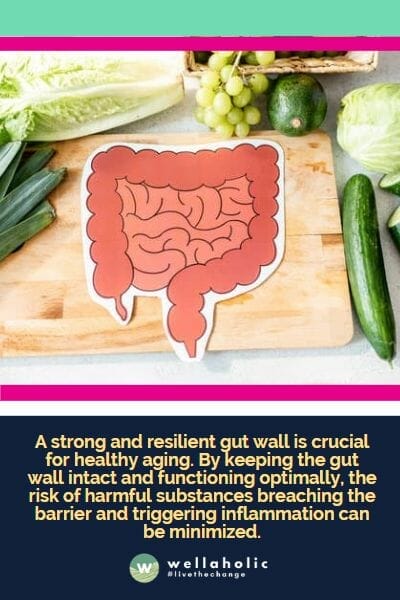
As a nutritionist, I have witnessed the utmost importance of the gut barrier in terms of overall health and long-lasting well-being in my clients.. It’s essentially a protective barrier between your gut and the rest of your body. Think of it like a bouncer at a club – the gut wall’s job is to be super selective about what it allows to pass through into your bloodstream, organs and tissues. It wants to let in all the beneficial nutrients from your food, while keeping out any troublemakers that could cause harm.
One of the biggest concerns I have for my clients’ gut health are lipopolysaccharides, or LPS for short. These little fragments come from the cell walls of dying bacteria in your gut. While some LPS is normal, problems start when they manage to sneak through your gut wall and get into places they shouldn’t be, like your bloodstream. That’s when your immune system freaks out because it sees the LPS as foreign invaders and launches an attack, causing inflammation. And if this keeps happening over and over, that inflammation can become chronic and lead to all sorts of age-related diseases my clients want to avoid, like diabetes, arthritis, cancer and Alzheimer’s.
That’s why I’m always preaching to my clients about how critical it is to maintain a strong, resilient gut wall. It really is the key to ageing well. The good news is, there’s a lot you can do to keep your gut wall in tip-top shape, like eating a healthy diet rich in fibre and nutrients, managing stress, getting enough sleep and avoiding things that can damage your gut wall like excessive alcohol, processed foods and certain medications.
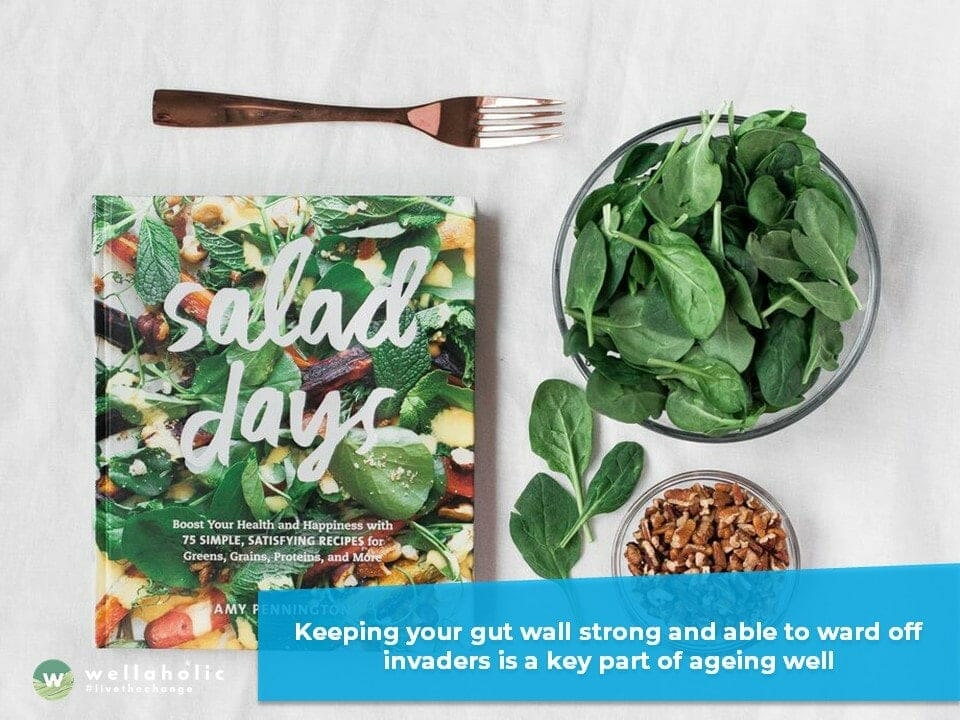
How to strengthen your gut
Load up on polyamine-rich foods like leafy greens, mushrooms, nuts, seeds, lentils, shellfish, chicken liver and aged cheeses. Your gut bacteria love to munch on these and will use them to make polyamines – special compounds that help protect and fortify your intestinal barrier. Think of polyamines as bricks that patch up any holes in your gut wall.
Fermented foods are your friend too. Sauerkraut, kimchi, kefir, yogurt – these are packed with probiotics and prebiotics that support the growth of beneficial gut bacteria. The more good guys you have in there, the stronger your gut lining will be. I like to think of it as having a robust neighbourhood watch keeping troublemakers out.
Finally, don’t forget the basics – reduce stress, get good sleep, stay active and hydrated. Your gut is intricately connected to your overall health and wellbeing. When you take care of yourself holistically, you’re also taking care of your gut. It’s all interconnected, so small positive changes can have ripple effects that lead to a more resilient gut in the long run.
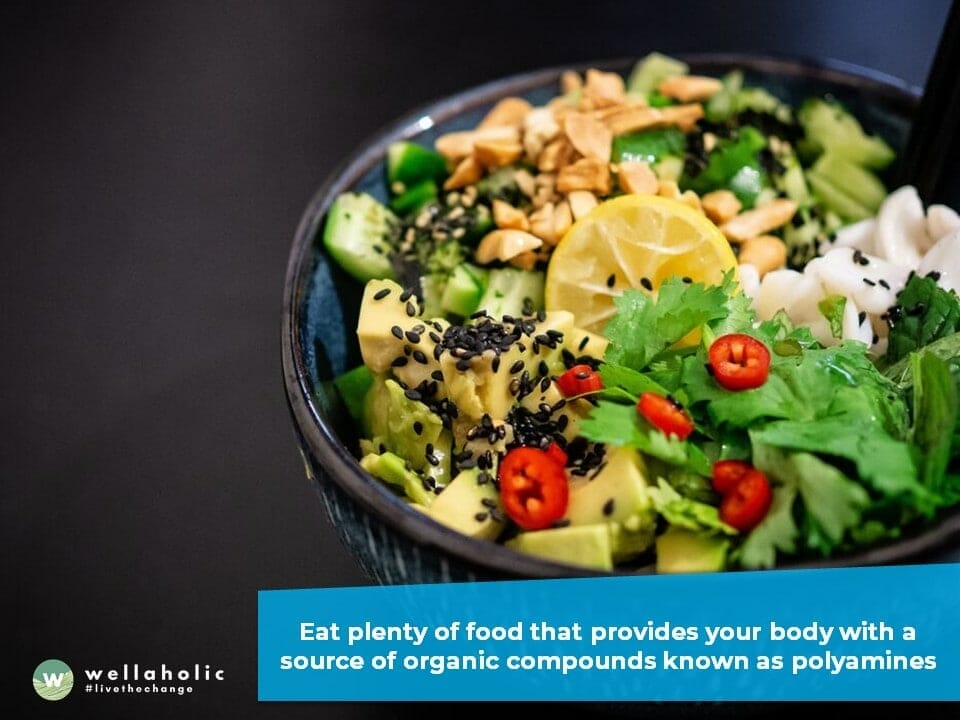
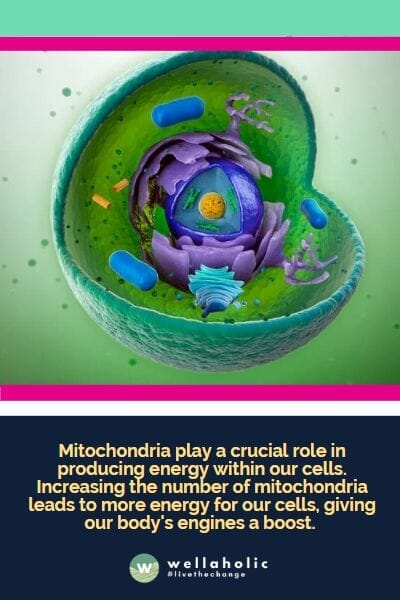
To live a long and healthy life, make your bacteria hungry
One key strategy I’ve discovered is partial, intermittent fasting. By limiting your calorie intake to under 900 per day for just five days a month, you can trigger powerful processes like hormesis and autophagy in your body.
You see, when your gut bacteria sense a lack of food, they send out an alert to your body’s cells. This triggers autophagy, where your cells start clearing out damaged components and recycling them, becoming stronger and more efficient. Even your mitochondria, the energy producers in your cells, pay attention to these signals from your gut bacteria.
That’s why I always recommend Wellaholic’s Probiotics Complex to my customers. It helps strengthen those healthy bacteria colonies in your gut for better gastrointestinal support. And if you really want to give your mitochondria a boost, try our Resveratrol High-Absorption supplement. It’s a super antioxidant that supports cellular regeneration and mitochondrial energy levels. Trust me, the better your mitochondria function, the better you’ll age. If longevity and youthfulness are your goals, you want those little powerhouses firing on all cylinders!

Conclusion
If you’re aiming to enhance your gut health and longevity, there are several strategies you can adopt. Firstly, ensure your diet is healthy and rich in fiber. Avoid processed foods and sugary beverages as they can disrupt your gut health.
Secondly, make exercise a regular part of your routine. Physical activity promotes the growth of beneficial bacteria, contributing to a healthy gut.
Lastly, consider incorporating probiotics into your diet. These live bacteria can enhance gut health and contribute to a balanced microbiome.
By adhering to these straightforward tips, you can boost your gut health and potentially increase your lifespan. Remember, a healthy gut contributes to a healthy life.

Serene Chiam, Aesthetic Director
Serene Chiam is the Aesthetic Director at Wellaholic, a well-known aesthetic chain in Singapore. She has more than ten years of experience in the aesthetics industry. With a Bachelor of Health Science (Aesthetics) and CIDESCO certifications, she expertly combines scientific knowledge with practical skills. Serene is known for her personalized approach to beauty, ensuring each Wellaholic client’s journey is unique and transformative. Her significant contributions have been pivotal in establishing Wellaholic’s reputation for excellence in aesthetic wellness.
Contact Serene at [email protected]
Wellaholic – Our Vision and Brand Promise

Wellaholic Vision and Brand Promise
At Wellaholic, we have a clear vision and brand promise that drives our dedication to helping customers look their best and achieve their aesthetic goals. We strive to provide exceptional service, foster a positive community, and empower our customers to prioritize self-care and embrace a healthier, happier lifestyle.
Wellaholic – Our Value Proposition
1. Affordable Prices. Always

- ⭐ Economical Excellence. Wellaholic maintains affordability through low costs, offering unlimited pricing packages to customers.
- ⭐ Smart Locations. Wellaholic places outlets near city MRT stations, avoiding high rents and passing savings to customers.
- ⭐ Competitive Insight. Through periodic surveys, Wellaholic ensures its prices remain affordable and competitive.
2. Highly Trained Staff

- ⭐ Commitment to Quality. Wellaholic continually trains staff, ensuring consistent, high-level service.
- ⭐ Expert Team. Wellaholic’s friendly staff boasts extensive skills and experience, including CIDESCO and WSQ qualifications.
- ⭐ Inclusive Excellence. Regular training audits at Wellaholic ensure consistent, high-quality treatments for all skin types.
3. Easy Online Booking

- ⭐ Efficient Scheduling. Wellaholic’s advanced booking system enables real-time tracking of customer appointments.
- ⭐ No-Wait Convenience. Wellaholic’s efficient booking system offers 24/7 access to schedule your preferred slot.
- ⭐ Easy Customization. Choose outlet, consultant, and service with a few clicks for personalized Wellaholic experience.
4. Multiple Convenience Locations

- ⭐ Convenient Expansion. Wellaholic will keep opening outlets in strategic locations, catering to customer convenience.
- ⭐ Accessible Proximity. Wellaholic outlets are within a 5-minute walk from multiple MRT lines for easy accessibility.
- ⭐ Expanded Capacity. Wellaholic’s ongoing expansion guarantees ample availability to meet customer demands effectively.
5. We are Open Everyday

- ⭐ Convenient Hours. Wellaholic operates from 11AM to 10PM on weekdays and 11AM to 8PM on weekends and holidays.
- ⭐ After-Work Flexibility. Wellaholic acknowledges the need for treatments after work, accommodating customer schedules accordingly.
- ⭐ Weekend Availability. Wellaholic understands customers’ weekend constraints and strives to open almost every day to accommodate them.
Reason 1: Wellaholic’s Unlimited Plans Save You Money
- ✅ Unlimited Hair Removal. Wellaholic offers unlimited hair removal plans with unlimited shots.
- ✅ Pay One Price for All Body Parts. Customers pay one price for unlimited hair removal on all body parts.
- ✅ Huge Cost Savings. Huge cost savings with unlimited plan. No separate fees for different body parts.

Reason 2: Wellaholic Has Over 50 Awards and 2000 Genuine Customer Reviews
- ✅ Over 50 Awards. Wellaholic’s treatments have been recognized by top beauty publications such as Daily Vanity, Beauty Insider
- ✅ Over 2000 Verified Customer Reviews. Wellaholic has over 2000 positive reviews from customers around the world.
- ✅ Over 50% Repeat Customers. More than 50% of Wellaholic’s customers are repeat and recurring customers.

Reason 3: It’s Easy to Book an Appointment at Wellaholic
- ✅ Open 361 Days Per Year. Wellaholic’s 8 outlets are open 361 days a year, including public holidays for easy bookings.
- ✅ No Queues. Book appointments in advance to avoid long wait times.
- ✅ Easy Online Booking. Customers can conveniently book and reschedule appointments online.
- ✅ No Extra Cost for Choosing Consultant. Customers can choose their preferred consultant for free.





